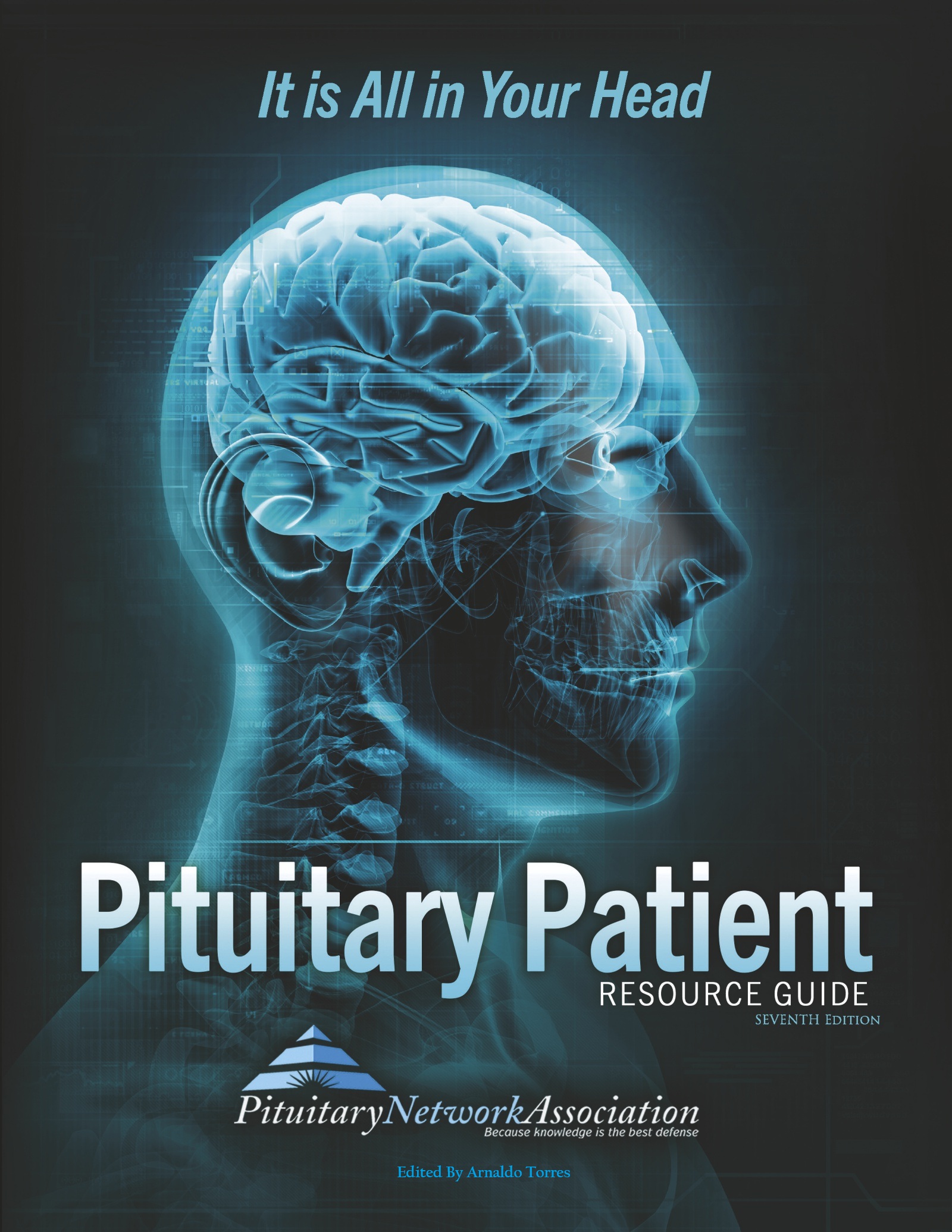Clinical Trials All Pages
A clinical trial is an organized study conducted in order to answer specific questions about a new treatment or a new way of using a known treatment. Each study tries to increase medical knowledge and to find new and better ways to help patients. Besides studying new drugs, clinical trials study new combinations of drugs already used, new ways of giving treatment, and how changes in lifestyle can help patients. Other clinical trials compare the best known standard therapy with a newer therapy to see if one produces more cures and causes fewer side effects than the other.
Most clinical trials are carried out in steps called phases. Each phase is designed to find different information. Patients may be eligible for studies in different phases, depending on their general condition, the type and stage of their disorder, and what therapy, if any, they have already had. Patients are seen regularly to determine the effect of the treatment, and treatment is always stopped if side effects become too severe. With information about ongoing and upcoming clinical trials around the world and all the latest news on medical advances, this section promises to be yet another important source of information for pituitary patients.
For current clinical trials, go to www.clinicaltrials.go
Article Index
Database Gives Public Easy Access to Information About Research Studies
(BETHESDA, MD) – The National Institutes of Health today announced the launch of the first phase of a consumer-friendly database, ClinicalTrials.gov, with information on more than 4,000 federal and private medical studies involving patients and others at more than 47,000 locations nationwide. The new database may be reached at www.clinicaltrials.gov.
Clinical trials are medical research studies that seek to evaluate the safety and effectiveness of new drugs, medical procedures, or other means of treating, diagnosing, or preventing diseases. This type of research helps investigators learn how different people respond to medications or other therapeutic approaches, and such investigations may lead to new or improved treatments. Trials are conducted when there is no proven treatment for a specific disease, or to test which treatment works best for a particular disease or condition.
ClinicalTrials.gov provides patients, families and members of the public easy access to information about the location of clinical trials, their design and purpose, criteria for participation, and, in many cases, further information about the disease and treatment under study. There are also contact points for individuals responsible for recruiting participants for each study.
Acting NIH Director Ruth L. Kirschstein, M.D., said, “Through this new database, NIH offers up-to-date information on promising patient-oriented research on hundreds of diseases and conditions. Most of the 4,000 clinical trials now in the database are funded by NIH Institutes and Centers, and result from a long, fruitful partnership between NIH and the American people who support and participate in our work.”
“If we are to continue making the giant strides in diagnosis, treatment, and cure of illness that marked the last century, we must have active participation in clinical trials by well-informed volunteers,” said Donald A.B. Lindberg, M.D., Director of NIH’s National Library of Medicine, which developed and administers the new database. “ClinicalTrials.gov is a resource that will benefit trial participants, researchers, health care professionals and, over time, the general public.”
Dr. Lindberg noted that ClinicalTrials.gov may also be reached through the National Library of Medicine’s Web site at https://www.nlm.nih.gov and through its consumer health information service, MEDLINEplus at https://medlineplus.gov. MEDLINEplus has extensive links to information about 350 diseases and health conditions, much of it from the NIH Institutes and Centers.
ClinicalTrials.gov grew out of 1997 legislation that required the Department of Health and Human Services, through the NIH, to broaden the public’s access to information about clinical trials on a wide range of diseases by establishing a registry for both federally and privately funded trials “on drugs for serious or life-threatening diseases and conditions.” (Section 113, “Information Program on Clinical Trials for Serious or Life-Threatening Diseases,” Food and Drug Administration Modernization Act of 1997, Public Law 105-115.)
“The project is proceeding in several major phases,” noted Alexa T. McCray, Ph.D., who directs the ClinicalTrials.gov project at the National Library of Medicine. “In the first phase we were interested in collecting information primarily about studies that are being funded by NIH, or that are being conducted right here on the NIH campus. With the release of ClinicalTrials.gov, the first phase is well under way. In the next phase we will include non-NIH sponsored trials from other Federal agencies and private industry.”
ClinicalTrials.gov is a completely confidential Web site. No registration or personal identification of any kind is required. People who search the site will not be contacted by the sponsors of clinical trials or by anyone else.
Note: Background information about clinical trials and specific information about the new database is available. The information, in the form of a “Q&A” document, may be requested by email from [email protected] or by phone from 301-496-6308. It is also linked to this press release on the Web at https://www.nlm.nih.gov/nn.html.
NLM also has a listing of current and past clinical trial participants who are available to discuss their experience in locating and participating in a medical study, and statements of support from consumer health organizations such as the American Cancer Society and the American Liver Foundation. These are available by calling 301-496-6308.
Question and Answer FACT SHEET About ClinicalTrials.gov
Q. What is ClinicalTrials.gov?
A. ClinicalTrials.gov is an information service of the National Institutes of Health (NIH) developed by its National Library of Medicine (NLM), providing patients, family members, health care professionals, and members of the public with easy access to information on clinical trials for a wide range of diseases and conditions.
Q. Who will use this database?
A. The ClinicalTrials.gov web site and database will be used by people with serious illnesses, their family and friends, advocacy organizations, media, health care professionals, and many others as a resource to gain information about current clinical trials.
Q. Why is NIH establishing this database?
A. The NIH has established this database to provide the public with access to
information about clinical trials and opportunities to participate in the evaluation of new treatments. The establishment of a registry of both federally and privately funded clinical trials of experimental treatments for serious or life-threatening
diseases submitted under Investigational New Drug regulations was mandated by The Food and Drug Administration (FDA) Modernization Act of 1997.
Q. Why is the clinical trials database at the National Library of Medicine?
A. The National Library of Medicine is developing the database in collaboration with all NIH institutes, other Federal agencies, the pharmaceutical industry and academic and other nonprofit organizations. As the largest medical library in the world, NLM has extensive experience with providing and managing health information services for the public as well as medical professionals and researchers. It is also the home of MEDLINEplus, the library’s consumer health information service.
Q. What does the database contain?
A. The database is being developed in stages. In this first stage, users will find information on approximately 4,000 primarily NIH-supported clinical studies. Later this year information on clinical trials supported by other Federal agencies and the private sector will be added. The database will be updated regularly.
Q. Are there any NIH-supported clinical trials not in the database?
A. While this is the most comprehensive listing of NIH-supported clinical trials to date, not all NIH trials are yet in the database. The database is updated regularly, so clinical trials are continually being added.
Q. What kind of information is available for each clinical trial?
A. For each study there is a summary outlining the purpose, the recruiting status, the criteria for patient participation, location of the trial, information on whether patients are currently being recruited, and specific contact information. Other information in the database that may help a patient decide whether to enroll in a particular trial includes the disease or condition, the particular drug or therapy under study, and the phase of the trial. ClinicalTrials.gov also links to other online health resources that help place clinical trials in the context of a patient’s overall medical care.
Q. Can this web site be used to sign up for a trial?
A. No. ClinicalTrials.gov only provides information. People interested in participating in a specific clinical trial should get in touch with the contact person listed for that study. An automatic e-mail link to the site contact person is sometimes provided.
Q. Can a person get in touch with the contact people directly?
A. Yes. Contact information is given for each trial, including an address and phone number, and sometimes e-mail links to trial sites.
Q. Does a person need to register to use ClinicalTrials.gov?
A. No. No registration or password is needed to access ClinicalTrials.gov.
Q. Is the database free?
A. Yes. Access to ClinicalTrials.gov is free.
Q. How can people without their own computer access the database?
A. People without computer or Internet access may connect to the database from libraries, community health centers, cyber cafes, and other public and commercial outlets.
Q. Will this be available in libraries?
A. Yes. ClinicalTrials.gov will be available in any public library with Internet access.
Q. How many trials are found in the database?
A. Currently, there are close to 4,000 trials in the database. More than 2,800 of these trials are still recruiting participants.
Q. How many diseases are represented in the database?
A. The database lists clinical trials for hundreds of diseases and conditions, including those that are rare or life-threatening. NIH Institutes and Centers have submitted information about trials for diseases they are studying. As the database grows to include trials from other Federal agencies and the private sector, the number of conditions and diseases represented in the database will grow.
Q. Is this the same as CancerNet?
A. No, CancerNet is a database produced by the National Cancer Institute that provides information on cancer and cancer trials. CancerNet trials are contained in the new clinical trials database, but so are trials for many other diseases.
Q. What makes this different from other clinical trials databases?
A. This federally sponsored database is designed to be the most comprehensive
central listing of clinical studies sponsored by the NIH, other Federal agencies, the pharmaceutical industry, and nonprofit organizations. Users are not asked to provide personal information nor will they be sent unsolicited material.
Q. Is there only information about trials open to patient recruitment?
A. No, the database also has information on clinical trials not yet open to patient recruitment as well as on trials closed to recruitment and trials that are completed. For completed trials, the web site sometimes provides links to published results.
Q. When will the other Federal agencies and the private sector trials be added?
A. Clinical trials supported by other Federal agencies and the private sector will be added later in 2000. The database currently includes a number of privately funded AIDS and cancer studies as well as a small number of trials from other agencies and universities.
Q. Is there a toll-free telephone number?
A. A toll-free telephone service for the database will be introduced in 2001.
Q. Are there international trials listed in the database?
A. Currently there are a few international trials in the clinical trials database.
Q. Will there be information on trials conducted using alternative medicines and treatments?
A. Yes.
Q. Can searches be done to look for trials being conducted using a specific new treatment?
A. Yes.
Q. Is specific information available concerning the eligibility requirements for each trial?
A. Yes. Information may be found for each trial, stating the criteria that need to be met in order for someone to be eligible to participate. Contact information is given for each trial, including an address and phone number, and sometimes e-mail links to trial sites.
Q. Does a person need to know scientific terminology to search the database?
A. No. The National Library of Medicine has developed some methods to assist users in searching the database. Each search will give the results for the disease or condition entered, as well as results from related terminology. There is also an automatic spell check that may help users unsure of the spelling of a medical term.
Q. Is it possible to find all trials in the database for a particular illness or condition?
A. Yes, in two ways. A person can search using the name of the illness or condition, or can click on “Browse” and find a list of illnesses or conditions.
Q. Can a person identify clinical trials near their home?
A. Yes. A search function can identify clinical trials for individual cities or states.
Q. Who had input into the design of the database?
A. NIH, in cooperation with FDA, developed the initial format for the database. Patients and patient advocates participated in focused testing to determine the
usability of the database and to provide suggestions for its improvement. Presentations of the prototype database at a community health forum and in many other settings have provided further public input.
Q. What is FDAMA?
A. FDAMA stands for Food and Drug Modernization Act. This act was passed by
Congress and signed into law by President Clinton in November 1997. It contains a number of sections on wide-ranging issues related to the regulation of food, drugs, devices, and biological products. In particular, Section 113, ” Information Program on Clinical Trials for Serious and Life-Threatening Diseases,” requires the Department of Health and Human Services, through the NIH, to establish a registry of clinical trials for both federally and privately funded trials of experimental treatments for serious or life-threatening diseases.
Q. Does the database include information beyond what’s required by FDAMA?
A. Yes. Though FDAMA requires only the inclusion of clinical trials for serious or life-threatening diseases, the database is designed to be a comprehensive clinical trials information resource. ClinicalTrials.gov also links to other online health resources that help place clinical trials in the context of a patient’s overall medical care.
Q. What review takes place at NIH before information is posted on ClinicalTrials.gov?
A. For trials that NIH supports or conducts, the funding Institute or Center reviews the data submitted regarding the trial prior to its inclusion in the database. ClinicalTrials.gov currently has some non-NIH supported Cancer and AIDS trials which are also reviewed prior to inclusion in the database.
About: Clinical Trials
Q. What is a clinical trial?
A. A clinical trial is a research study designed to answer specific questions about new therapies, diagnostic tests, screenings, and disease prevention by testing new procedures in people. Clinical trials (also called medical research and research studies) are used to determine whether new drugs or treatments are both safe and effective. Carefully conducted clinical trials are the fastest and safest way to find treatments that work.
Ideas for clinical trials usually come from researchers. Once researchers test new therapies or procedures in the laboratory and get promising results, they begin planning trials to test the therapy in people. New therapies are tested on people only after laboratory and animal studies show promising results.
Q. What is a protocol?
A. All clinical trials are based on a set of rules called a protocol. A protocol describes the criteria for participation; the schedule of tests, procedures, medications, and dosages; and the length of the study.
Q. What are clinical trial phases?
A. Clinical trials of experimental drugs proceed through four phases:
* In Phase I clinical trials, researchers test a new drug or treatment in a small group of people for the first time to evaluate its safety, determine a safe dosage range, and identify side effects.
* In Phase II clinical trials, the study drug or treatment is given to a larger group of people to see if it is effective and to further evaluate its safety.
* In Phase III studies, the study drug or treatment is given usually to large groups of people to confirm its effectiveness, monitor side effects, compare it to commonly used treatments, and collect information that will allow the drug or treatment to be used safely.
* Phase IV studies are done after the drug or treatment has been marketed. These studies continue testing the study drug or treatment to collect information about its effect in various populations and any side effects associated with long-term use.
Q. What protections are there for people who participate in clinical trials?
A. Every clinical trial in the U.S. must be approved and monitored by an Institutional Review Board (IRB) to make sure the risks are as low as possible and are worth any potential benefits. An IRB is a committee of physicians, statisticians, patient advocates, and others that ensures that a clinical trial is ethical and the rights of study participants are protected. All institutions that conduct or support medical research involving people must, by federal regulation, have an IRB that initially approves and periodically reviews the research.
Q. What is informed consent?
A. Informed consent is the process of learning the key facts about a clinical trial before an individual decides whether or not to participate. When an individual is considering joining a clinical trial, the research staff will provide informed consent documents that include details about the study. But informed consent is more than just signing a form. It is a continuous process, with the research team providing information throughout the course of the trial. Since joining a clinical trial is an important decision, people are encouraged to discuss all their questions and concerns with the research team before deciding whether to participate.
Q. Who can participate in a clinical trial?
A. All clinical trials have criteria–or guidelines–about who can participate in the study. Guidelines are based on such factors as age, type of disease, medical history, and current medical condition. Before joining a clinical trial, a person must qualify for the study. Some research studies seek volunteers with illnesses or conditions to be studied in the clinical trial, while other trials need healthy volunteers.
Factors that allow a person to participate in a clinical trial are called “inclusion criteria.” Factors that keep a person from participating are called “exclusion criteria.” Inclusion and exclusion criteria are used to identify appropriate participants. The criteria are not used to reject people for any personal reasons.
Q. Who sponsors clinical trials?
A. Clinical trials are sponsored by: government agencies such as the National Institutes of Health (NIH); pharmaceutical companies; individual physician-
researchers; health care institutions such as health maintenance organizations (HMOs); and companies that develop medical devices or equipment. Trials can take place in a variety of locations, such as hospitals, universities, doctors’ offices, or community health clinics.
Q. What are the benefits and risks associated with clinical trials?
A. There are both benefits and risks associated with clinical trials. By participating in a clinical trial, a person may benefit by:
* Helping others by contributing to medical research.
* Gaining access to new treatments that are not available to the public.
* Obtaining expert medical care at a leading health care facility during the trial.
Clinical trials have risks or drawbacks:
* There may be side effects or adverse reactions to medications or treatments.
* The treatment may not be effective for some individuals.
* The protocol may require a lot of time for trips to the study site, treatments, hospital stays, or complex dosage requirements.
Q. Can a participant leave a clinical trial after it has begun?
A. Yes. Participants can leave a clinical trial at any time.






